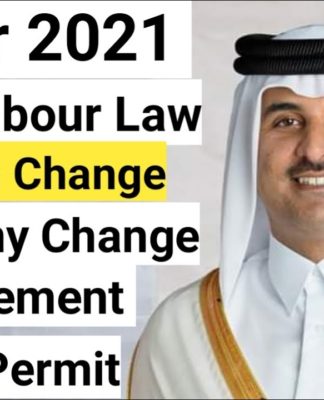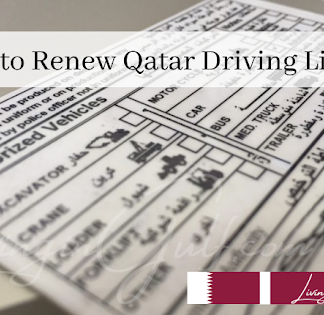Analysis
Budget 2023: Who are the winners and losers? How three real households are affected
The chancellor has announced measures covering pensions, childcare, energy bills and petrol prices. But what does that all really mean? Sky News has crunched the numbers on the monthly finances for three real households to see if they’ll be better or worse off.
Daniel Dunford
Senior data journalist @danieljdunford
Wednesday 15 March 2023 20:12, UK
Sky News' Samantha Washington was in Burnley, watching the budget with several people who gave their reaction.3:24
Play Video – ‘Where’s levelling up in budget?’
Sky News’ Samantha Washington was in Burnley, watching the budget with several people who gave their reaction.
Why you can trust Sky News
No matter what’s going on in your life, something in today’s financial statement from Jeremy Hunt will have a real impact on how much money – if anything – is left for you each month to spend on the things you want.
Sky News has analysed the real budgets of three different households to see whether they end up better or worse off.
Linda Marshall
Linda is going to be better off overall, thanks in part to the continuation of the energy bill price cap, although it might not feel like that, as the government has not extended the Energy Bills Support Scheme.
We’ve not included that in our calculations as it was a planned change rather than anything that came out of today’s announcements.
“We were really relying on that £67 payment, which we’re going to be losing. It’s a lot of money. The cap is good but they’re taking it out with the other hand. I can’t see how I’m going to be better off at all really. I’m gutted,” she told Sky News.
Click here for our budget calculator to see if you are better or worse off
Linda receives a private pension and a Personal Independence Payment (PIP) to help with health issues that forced her to take early retirement in 2017, aged 55.
Linda’s husband Wayne works full-time for an electrical engineering company, and they also receive rent from Linda’s 38-year-old son Anthony, who moved back in last year due to the rising cost of living. Linda also cares for her grandson Jamie for two days in the week, to help out with childcare costs.
READ MORE
No big bangs, but there still could be blow ups: Beth Rigby’s political analysis
No feel-good factor: Ed Conway’s economic analysis
The new energy cap, Linda’s biggest saving, helps all households. When the government first introduced the Energy Price Guarantee it said that at this point it would rise from £2,500 to £3,000, for a typical annual bill, to ease pressure on public funds. It’s now set to stay at £2,500.
Linda is benefiting from an uplift in her disability support payments, however, adding to extra support received last year.
Frozen tax thresholds mean that Linda’s husband will effectively pay an extra £170 in tax next year. As his salary rises with inflation, the amount he can take home before paying tax does not. More on that later on.
Mike Holden
Mike ends up worse off overall. He doesn’t mind so much as he’s in a comfortable situation, but was hoping to hear more support for those struggling.
“My concern is not for myself, I’m comfortably off. If fuel bills stay as they are I can survive, if they go up I can take the hit a little bit. People here [in Burnley] on minimum wage can’t afford to heat their homes or feed their kids.
“I was hoping for more support for those people rather than myself. I will rise over the bumps and I have a retirement coming up in a few years.”
Mike owns his own home and is the landlord for two others. He’s comfortable, but that doesn’t mean he’s immune from rising costs.
“Our day-to-day costs have doubled in the last 12 months, fuel costs have gone up 50%. And Liz Truss’s intervention cost me about £60,000 in lost pension pot,” he said.
Like Linda, he benefits from the energy price cap, but he loses out more from the tax threshold freeze. It will cost him more than £300 in real terms over the next 12 months.
Why is the tax threshold freeze so significant? As inflation rises so, typically, do wages. But in real terms, the value of money becomes less.
£10,000 will buy you about 10% less stuff than it did last year, for example.
In the UK you can earn £12,570 without paying tax. Typically that number, and the number at which you start paying a higher rate of tax (£50,270) rise each year to account for the fact that the money is worth less.
They haven’t this year and that affects all taxpayers, but could cost thousands for higher earners. It’s effectively a stealth tax.
Mike’s main concerns around the budget, however, are for those on lower incomes in his area, who he’s seen struggling to pay for the basics or even to feed their children.
“The stabilisation of the tax rate will cost me a bit of money, but I can tighten my belt a bit. People around here like Lianne don’t have more belt to tighten.”
Lianne Bruce
Lianne will end up better off than last year, mainly thanks to the fuel duty freeze. Her husband Damian is also self-employed, he has a removals company so spends a lot on diesel. Once more though, it doesn’t feel like things are getting any easier.
“It’s really testing times, especially being self-employed. I feel we’re always the ones left behind. You’re trying to do well for yourselves but you’re backpedalling all the time,” she told Sky News.
“The government needs to step up and help the working person. Costs are going up and up and up across the board and they make it sound like – because they’re keeping it at a level rate, not increasing it anymore – they’re doing us a favour, but they’re not. People are struggling.”
Click to subscribe to the Sky News Daily wherever you get your podcasts
Lianne and Damian have a four-year-old daughter who started school this year. They won’t benefit from today’s announcement about childcare support.
Before she started school they paid £100 for two days of childcare a week. Lianne had to go part-time with her work because it was unaffordable to pay for more.
What the family lose from the tax threshold freeze is offset by what they gain from an uplift in child benefit, energy prices and fuel prices.
Fuel duty is the amount of tax that the government charges drivers when they buy petrol. When petrol prices started rising the government lowered the amount of tax it gets, per litre, but planned to raise it back again.
The government announced today that they will no longer do that, which is especially important to Lianne’s husband Damian with his driving-intensive job. Raising the duty as planned would have cost the family over £200 more a year.
Prices are still significantly higher than they were before Russia’s invasion of Ukraine, however.
“People are already at breaking point. For people on the borderline, if things get any worse I dread to think what’s to come,” Lianne added.
Follow more of Sky News’s reaction to the budget on our live page.
The Data and Forensics team is a multi-skilled unit dedicated to providing transparent journalism from Sky News. We gather, analyse and visualise data to tell data-driven stories. We combine traditional reporting skills with advanced analysis of satellite images, social media and other open source information. Through multimedia storytelling we aim to better explain the world while also showing how our journalism is done.
Why data journalism matters to Sky News
Related Topics
Budget 2023
Data And Forensics






























